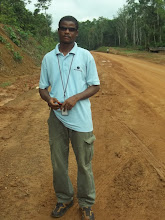Sharon Friedman, a professor of journalism, was awarded the International Green Pen Award from the Asia-Pacific Forum for Environmental Journalists for her work in advancing international environmental reporting this month.
The award is given to those who have helped encourage others to pursue journalism that focuses on the environment, according to Sri Lanka Environmental Journalists Forum, a social organization that uses the media to make change.
Friedman was among five independent environmental journalists who received the 2009 International Green Pen Award.
Friedman was awarded the honor based on her work with environmental reporting in the Asia-Pacific region of the world. Part of her work included leading teaching seminars in Asian countries, centered on the book written by Friedman.
Her book, "Reporting on the Environment: A Handbook for Journalists," was co-authored by her husband, Ken Friedman, also a journalism professor at Lehigh, and covers topics of responsible environmental reporting.
As with the seminars, the book was written with a focus on the Asia-Pacific region. Friedman says the book has been translated into 19 languages and is used in some of her classes.
The seminars in Asia occurred over almost a decade of summer trips that usually lasted between three and four weeks long, she said.
The training workshops were initially sponsored by the United Nations Economic Social Commission for Asia and Pacific, but Friedman says the funding was eventually picked up by several collaborating journalist forums when the U.N. funding ended.
Friedman considers herself an environmental journalist, but noted she did not start her career in environmental journalism until she had had several different careers.
Her undergraduate studies were focused on molecular biology, although she soon found work writing about ecology.
"I got a job writing about ecology and the environment at the National Academy of Sciences in Washington D.C., and so I didn't know very much about ecology, so I learned on the job from the best minds in the United States," said Friedman.
Friedman noted it was "serendipity" that led to these career changes into environmental journalism and her eventual connection to the groups in Asia.
Friedman says it was an article about environmental journalism that she wrote for a magazine titled "Environment" that caught the eye of a foreign U.N. executive.
"It was seen by the head of the U.N. program in Bangkok," Friedman said, who sent her several ambiguous telegrams, signed only with "Economic Social Commission for Asia and Pacific."
After finally arranging a long-distance phone call, Friedman became a consultant for the U.N. "The whole thing started by chance," Friedman said. "It turned out to be a wonderful experience."
Friedman recognizes her career and success are due to her flexibility of career paths and changes.
"I always tell my students that careers are not developed like straight bullets. Be adaptable and flexible, and open to new opportunity," she said.
Friedman noted the importance of environmental journalism today, especially in presenting a "non-biased point-of-view."
She described how environmentally inclined organizations and industries may present environmental information in different ways, furthering the need for environmental reporting.
"It raised awareness on many different levels," Friedman said of her work in environmental journalism.
This was not the first award Friedman has received for her work, although it is her first major international award.
In 1989, Friedman was elected as a fellow in the American Association for the Advancement of Science. Friedman was also a co-recipient of Lehigh's Hillman Award for her excellence in undergraduate instruction.
Read more at:
http://www.environmentaljournalists.org/Prof_Sharon_Friedman_of_USA.htm
Courtesy,
ALEX ZOOK, Forum for Environmental Journalists
Monday, November 16, 2009
Subscribe to:
Post Comments (Atom)

No comments:
Post a Comment